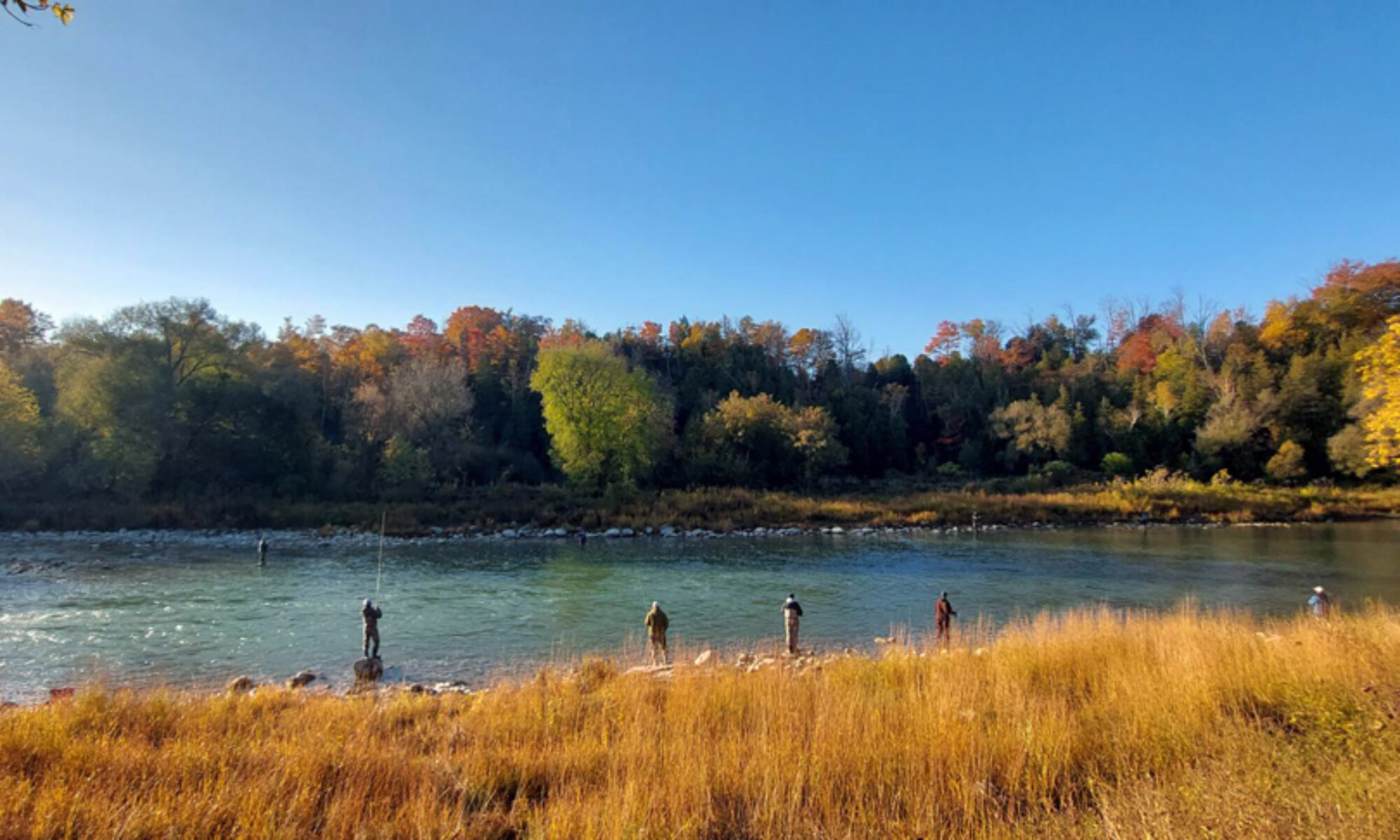
Summer is over, but there’s still plenty of time to enjoy the great outdoors! Remember to check the bottom of this email for important dates and reporting deadlines!

Students from the Kendomang Zhagodenamnon Lodge (KZ Lodge) program at Hammarskjold High School in Thunder Bay spent a day with Fish and Wildlife Program staff. The students assisted with stocking Brook Trout in Chub Lake.
By assisting with stocking fish, the students learned about the environment and supported recreational fishing in the region.
These activities show how important it is for the community to be involved in conservation efforts, making sure our aquatic ecosystems have a future.
MNR’s fish culture program operates 9 fish culture stations across the province and helps recreational fishing by providing opportunities to catch popular sport fish.
Read the full story.
Find more information on fish stocking.

There’s nothing better than spending a day on the water and sharing a picture of your catch, big or small! When practicing catch-and-release, it’s important to handle fish with care to ensure their survival after their release. This is particularly important when taking photos, which can often lead to extended periods of air exposure.
Here are some guidelines to help you capture that perfect shot while keeping the fish’s health a priority: Prolonged air exposure can be harmful, even fatal. Keep the fish submerged as much as possible, and only lift it for a brief photo. Ensure your camera or phone is ready to go before you bring the fish out of the water.
Improper handling can cause injury.
Avoid touching the gills or eyes, as these are particularly sensitive areas. For larger, heavier fish, do not hold them by the jaw alone. This can dislocate the jaw, making it difficult for the fish to feed afterward. Instead, support the body horizontally, cradling the fish with both hands if necessary.
Before handling the fish, wet your hands or wear wet cloth gloves. This helps to reduce the removal of the fish’s protective slime coat. The slime coat is essential for the fish’s health, as it protects against infections and helps with swimming.
By following these best practices, you can enjoy the sport of fishing and share your experiences through photos without compromising the health of the fish. Learn more information about catch and release best practices such as landing techniques and recommended gear.
Interested in becoming a summer student for the ministry?
Do you or someone you know want to join the MNR as a summer student in 2025? Jobs will be posted as early as December 2024 for the 2025 summer season, watch the job board for updates. Don’t miss this chance to develop new skills and gain experience!
Find year-round job opportunities on the job board.

We need your help! Submit a sample, stay informed and help protect Ontario’s cervid populations.
Chronic Wasting Disease (CWD) is a fatal and untreatable disease affecting cervids, such as white-tailed deer, moose and elk. While CWD has not been detected in Ontario wildlife, it has spread to over 35 U.S. states and 5 Canadian provinces (Alberta, British Columbia, Manitoba, Québec, and Saskatchewan).
Hunters can help prevent the introduction of CWD to Ontario by using plant-based or synthetic lures, using locally sourced bait, and avoiding bringing back high-risk parts from out-of-province hunts.
The ministry will conduct its annual CWD surveillance program throughout 2024. This program is essential for monitoring cervid populations, assessing their health, and ensuring early detection of CWD.
We have identified two target regions in Ontario for comprehensive CWD surveillance in 2024: 
one 2 (Owen Sound – Orangeville – Kincardine)
WMUs 81A, 81B, 82A, 82B, 82C, 84, 85B
Zone 1 (Peterborough – Belleville)
WMUs 68A, 71, 74A, 74B
By submitting deer samples and following preventive measures, hunters play an important role in protecting Ontario’s cervid populations from CWD. Thank you for your cooperation and commitment to wildlife conservation.
The first 500 hunters in each zone to submit a sample receive a collectable crest.
For more information on this program or to submit a sample from one of the sampling areas, please call the ministry wildlife health information line for chronic wasting disease at 1-888-574-6656.
Discover how you can help prevent CWD and stay tuned for the 2024 testing and freezer locations to be posted this fall before the gun hunt opens.

Learn about sustainable casting with Andy Todd, the manager at the Lake Ontario Management unit from the Ministry of Natural Resources, on the Outdoor Journal Radio’s Diaries of a Lodge Owner podcast.
The Diaries of a Lodge Owner podcast, hosted by Steve Niedzwiecki, shares the fascinating journey of a former sheet metal mechanic who transformed a rundown Canadian fishing lodge into a renowned destination. Each episode delves into a mix of personal stories, challenges, and successes from Steve’s time as a lodge owner, along with interviews featuring a diverse array of guests.
In Episode 40 titled; “Sustainable Casting: Lake Ontario’s Strategy,” the discussion centers around the ongoing efforts to maintain and improve the sustainability of Lake Ontario’s fisheries. The episode highlights various strategies being implemented to protect the lake’s ecosystem while supporting recreational fishing.
This episode offers valuable insights for anyone interested in the
intersection of sustainability and fishing on Lake Ontario.
Listen to the full episode.

Hunting Seasons
Turkey, bear, moose, elk, deer and small game seasons are opening this fall. Check the hunting regulations for your wildlife management unit.
Reporting Deadlines
Elk – October 13
Fall Wild turkey – November 14
Non-resident moose hunter report for tourist outfitters – November 22
Other
Wild turkey tags – Available now
For real time updates, to locate specific fires and check Restricted Fire Zones in your area, visit Ontario’s Interactive Fire Map.
Make sure you have the courses and credentials you need to hunt in Ontario.
Fish and Wildlife Services Branch
Ministry of Natural Resources
300 Water Street
Peterborough, Ontario K9J 3C7.
For help with your Outdoors Card and licence questions, please call:
1-800-387-7011
(TTY) 1-866-686-6072
For general inquiries about MNR programs and services
please use this email address: NRISC@ontario.ca

